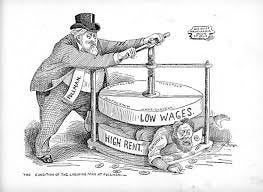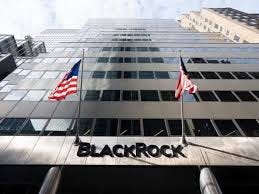

This piece is longer than normal, but the economic story Andy tells is important to understand as we move forward. Like Andy, I want to see a Scottish economy that generates wealth for all its People, not one that has its wealth extracted and stolen by others for their benefit.
I’ll try to identify the major changes that have occurred in the UK over the last 40 years, during which time I’ve moved from a supporter of devolution to one of full independence for Scotland.
In 1974 I had recently graduated from Oxford and was working as a full-time trade union Officer for the National Union for Public Employees (NUPE) in England. I was involved in the struggle for decent wages which in those days was seen in political terms as the Labour Movement against the Tories. I supported devolution because I considered the main struggle in Scotland, as in England, to be the fight against the Tories which could be waged within the UK by uniting working people. I thought that devolved power in Scotland could make a marginal difference, but wasn’t central to the struggle.
However, because I had an understanding of economics and was interested in government economic policy, I soon recognised that the UK establishment was changing its ideology. The Keynesian policies which the previous Labour Party had followed, were no longer acceptable to the UK establishment, and both Labour and Tory politicians were changing to comply with the new dominant ideas. These ideas are now described as “Neo-Liberalism”.
The economic teaching in Oxford was changing and Keynesian economics was being challenged. The media was pushing the new economic mantra and all politicians were adjusting to this, both Tory and Labour MPs. The Labour movement had finally won over the TUC to a somewhat Keynesian position on public investment and employment and expected Labour in Government to adopt such a policy. But we were bitterly disappointed.
This major change in ideology started before Thatcher came to power. It was the Labour Government which had high unemployment and went into the General Election in 1979 after a bitter struggle with low paid workers, trying to reduce their earnings further.
This was when I lost faith in Labour politicians and in the ability to change the UK system. I began to believe that Scotland had to break from that system. In the 1979 devolution referendum I saw the UK establishment reject the call for a Scottish parliament even after 52% of the people had voted for it. We then got a Thatcher Government that attached itself to neoliberalism and got the UK to embrace it.
I knew that devolution wouldn’t be enough and that Scotland would need to have full political and economic independence, but I thought that this would best be achieved by first pushing for a devolved parliament. At that time support for independence in Scotland was low as was support for the SNP, the only independence-supporting political party.
The Thatcher years saw the industrial and manufacturing base of the UK dismantled and the demand for Scottish devolution grew to such an extent that the Scottish People established the Constitutional Convention. The Convention demanded the establishment of a Scottish Parliament. Under this pressure the Labour Party was forced to commit to putting a bill through Parliament to establish such a parliament if returned to power.
In 1997 we got the second referendum which set up the Scottish Parliament.
The Scottish parliament did what many of us had hoped it would. It showed that Scots have different political priorities than the English do, and supported different political parties to reflect this.
This was a big problem for Labour because they were a UK, not a Scottish, party. The leadership of the Labour Party selected its policies to meet the acceptance of UK members, dominated by English members, which was often unacceptable to Scottish members. The Labour Party didn’t address this but tried to ignore it. Resentment amongst its Scottish supporters grew and Labour started to lose active members in Scotland.
By 2007 the SNP just managed to form a minority government in Scotland. Then the second big economic change hit us - the 2007/8 financial crisis. This major international crisis was totally unpredicted by the economic advisers in all capitalist countries and was devastating in its potential economic impacts. The worst of these potential impacts was averted, but only by western countries using taxpayer money to bail out the private banks.
This huge bailout was paid for, not by increasing production or making the richest pay more tax, but by “austerity,” which took wealth from the poorest and the public sector to ensure that the wealthy and their bankers did not suffer the consequences of their own actions.
As a result, the major inequality which existed in places like the UK was exacerbated. Society became grossly unequal. The narrow path out of poverty which had existed for a few disappeared and many more were driven into poverty. For the first time since capitalism emerged in the UK, the younger generation had worse future prospects than their parents had.
These changes have had social and political repercussions. There has been a desperate lunge to the right in the Tory Party, which has caused and continues to cause deep divisions. The Labour Party has also swung to the right and is divided for the same reason. The Neo-Liberal ideology embraced by the media and the party leaders is at the centre of the economic problems.
Big international capitalism has morphed into a wealthy class of Rentier-Capitalists. These new masters of our destiny secure their positions of power in a different way. They are not driven by “market” forces or “profits” from production. Rather, they seek control of natural assets, the internet, and the international financial system which they then use to impose “rent” on business, domestic and public users. They generate no real value themselves but, like leeches, suck the value from land, capital and workers.
This new capitalist or “Techno Feudalist” system, as Yanis Varoufakis calls it, makes it confusing not just for politicians but for all of us in trying to work out what’s happening.
Those who believed in the “Free Market” system, where open markets and profits were essential, now find that “markets” are dominated and controlled by the big tech companies, and “profits” are not important for wealth and have been replaced by “rent”. Many Tories who are committed to local businesses are now discovering 1) that these businesses are no longer able to compete and survive in the new economic world unless they pay rent to access those markets and 2) that their profits, however reasonable in historical terms, do not allow them to compete in the financial world with international Rentier-Capitalists who are acquiring wealth much more quickly and steadily than they can.
This presents Tory MPs with problems, because everything they thought was true has turned out not to be. They’ve divided into those who stick to the principles of capitalism they’ve always known, and those who ditch the theory and just stick with the big money makers (and political donors).
This division also has the same effect on the Labour Party, as the big Rentier Capitalist Multinational Corporations try to win over the leadership with their control of the media and political bribes.
The only way that people can fight against the new Capitalist Feudal Lords is to use their collective democratic power to gain control over their country’s land and natural resources. If the People and their elected representatives hold the land and natural resources, then the Rentier-Capitalists will be forced to deal with them, thus curbing their rental power.
The change-over from Market-Capitalism to Rentier-Capitalism is still in progress, so the friction and political division will continue for some time.
The Liz Truss Government was brought down by international financial power for the same reason that the International Monetary Fund (IMF) warned the present Tory Government not to indulge in big tax cuts for the wealthy.
The UK, like the US, is a net importer of goods and services. Since goods and services represent real wealth, this means that we are using the present financial system to extract more wealth from the international community than we are putting in. The IMF is aware that this system won’t last for ever and is under strain.
The US Rentier-Capitalists want the system to survive so don’t want more pressure on it. So, if the UK capitalists want to cut taxes and they don’t get the additional wealth to do so from increased UK production or screwing it out of UK workers, then it will come from increasing their ability to import even more goods and services from the world community. But the big US corporations don’t want UK Rentier-Capitalists stealing even more wealth from the world community. If there’s more to be stolen then they think they should have it, not the Brits, so they are warning them not to try.
What does all this mean for us?
It means the financial base of this system is on a shoogly peg. Our independence political leaders may have good intentions but their performance falls far short of what we need. Meanwhile, the demand for independence among the People has never been stronger and is likely to grow.
So, we must build a movement within the People, not for the People, but with the People. We must use what knowledge and skills we have and share them so that the Scottish People can take sovereignty into their own hands and determine their political and economic future. If we do that while the present system falls apart, then the Scottish People will be in a position to build a better future for themselves, their children, and for the world.




Thanks, Andy, for pointing out that the People need to take things into their own hands - and that means the People must take control of a forthcoming Constitutional Conference.
While the Convention which most Labour MPs signed did put pressure on Labour to act when they came to power in 1997, what really forced their hand was the threat from the Council of Europe which described UK democracy as 'primitive'. If the UK did nothing to improve, it risked being kicked out of the Council, membership of which was required by the EU.